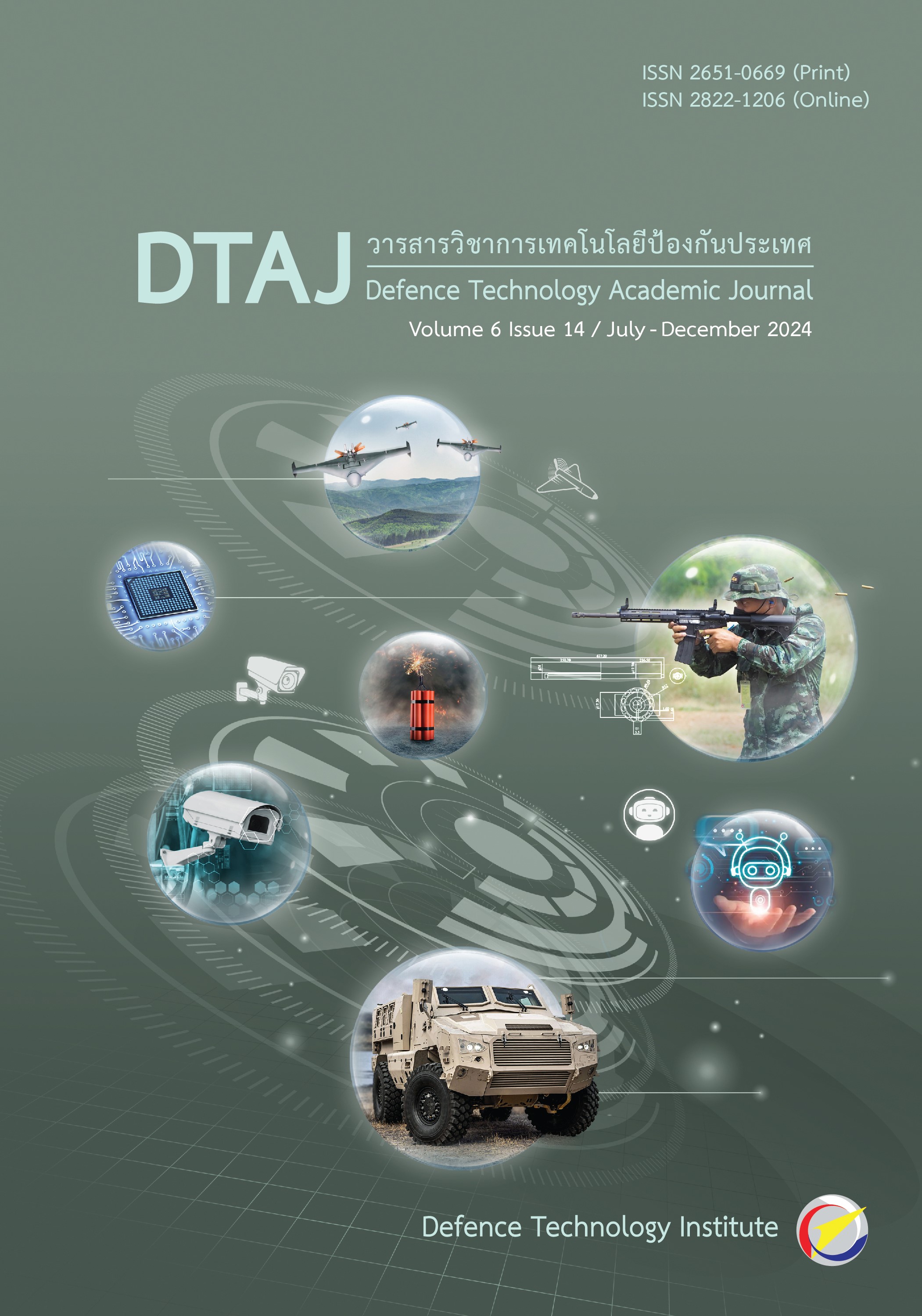Development of Smart Camera Network Platform using Pineapple Program for the CCTV System of Provincial Police Region 4
Main Article Content
Abstract
This study aims to develop a CCTV system based on geographic information. The design and development of the computer program aligns with the usage requirements and data analysis by comparing the efficiency of the program with other programs. The results showed that the Pineapple program, the smart camera network platform of the Provincial Police Region 4 is a computer program that is utilized for the purpose of showing the locations of closed circuit cameras that have been installed in various locations on a variety of geometrical information maps. These maps include Google Map, Bing Map, and others. The following characteristics are possessed by the program: 1) It displays details and an unlimited number of spots and positions of closed circuit cameras that have been registered with the system. 2) It displays the video clips recorded by all cameras in the system simultaneously at real time and flashback; 3) It downloads video files from all cameras at the time that is set; and 4) It is compatible with all brands of closed circuit cameras
Downloads
Article Details

This work is licensed under a Creative Commons Attribution-NonCommercial-NoDerivatives 4.0 International License.
Journal of TCI is licensed under a Creative Commons Attribution-NonCommercial-NoDerivatives 4.0 International (CC BY-NC-ND 4.0) licence, unless otherwise stated. Please read our Policies page for more information...
References
สำนักงานตำรวจแห่งชาติ. “จำนวนการจับกุมคดีอาชญากรรมของสำนักงานตำรวจแห่งชาติ จำแนกตามประเภทคดี (ประเภทคดีอาญา และคดีสำคัญตาม พ.ร.บ. ที่มีโทษทางอาญา).” UBON.nso.go.th. https://ubon.nso.go.th/about/law-regulation.html?view=article&layout=edit&id=103 (วันที่เข้าถึง ธ.ค. 1, 2564).
K. Harntoa, “CCTV Buying Decising Behavior of People in Bangkok,” M.S. thesis, Dept. Manage. Sci., Silpakorn Univ., Bangkok, Thailand, 2016.
Hikvision. “Hikvision Products.” HIKVISION.com. https://www.hikvision.com/th/ (accessed Dec. 1, 2021).
Dahuasecurity. “Dahua Products.” DAHUASECURITY.com. https://www.dahuasecurity.com/th/ (accessed Dec. 1, 2021).
N. Santayakorn, “Increase of Pedestrian Tracking Performance in the Stationary Close-circuit Camera System using Mobile Camera System,” M.S. thesis, Dept. Eng., Chulalongkorn Univ., Bangkok, Thailand, 2018.
P. Wonghabut, R. Ung-arunyawee, T. Satiennam, W. Leelapatra, P. Jantosut, and J. Kumphong, “Development of Program for Red Light Running Violation and Helmet Wearing Using CCTV Camera,” KKU Res. J. (Graduate Stud.), vol.19, no. 2, pp. 41-52, Apr.-Jun. 2019.
S. Hiranchan, P. Pundee, and Mahasak Ketchum, “Vehicle Registration and Notification System for CCTV on Pavement,” Sci. Technol. Innov. J. (STIJ), vol.1, no. 1, pp. 1-6, Jan.-Feb. 2020.
K. Nerngchamnong, S. Kaviya, Y. Fujii, and P. P. Yupapin, “World Heritage City Surveillance System by a Smart CCTV System,” Procedia Eng., vol. 8, pp. 321-327, 2011, doi: 10.1016/j.proeng.2011.03.060.
J. Kurniawan, S. G. S. Syahra, C. K. Dewa, and Afiahayati, “Traffic Congestion Detection: Learning from CCTV Monitoring Images using Convolutional Neural Network,” Procedia Comput. Sci., vol. 144, pp. 291-297, 2018, doi: 10.1016/j.procs.2018.10.530.
E. D. Kembuan, J. R. Batmetan, M. Daud, and I. R. P. Tarandung, “CCTV Architectural Design for Theft Detection using Intruder Detection System,” Int. J. Inf. Technol. Educ., vol.1, no. 2, pp. 72-78, 2022, doi: 10.62711/ijite.v1i2.42.
P. Chaimeerang “Development of Information System for Managing Learning Outcomes of Higher Education Curriculum,” NEUARJ, vol.11, no. 2, pp. 68-82, Aug. 2021
K. Bunnag, “Generative Artificial Intelligence and Its Military Application,” Def. Technol. Acad. J., vol. 6, no. 13, pp. 28–41, May 2024.
E. Nintra, S. Airphaiboon, and S. Jiriwibhakorn, “Classification of Weapons using
Convolution Neural Networks Suitable for Portable Devices,” Def. Technol. Acad. J., vol. 6, no. 13, pp. 4-15, May 2024.


